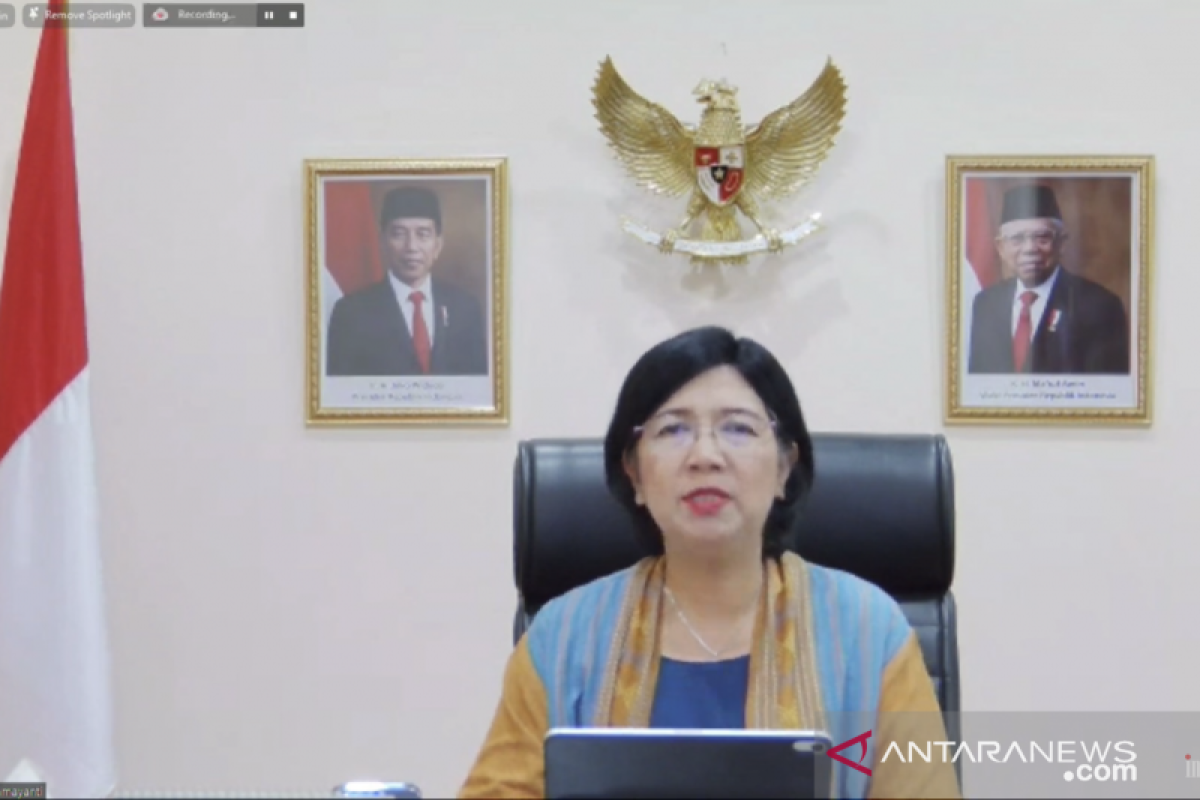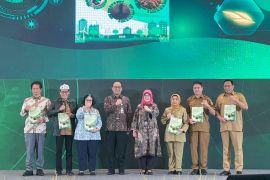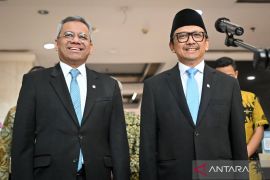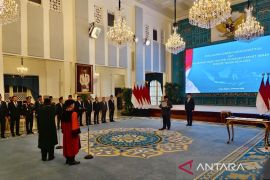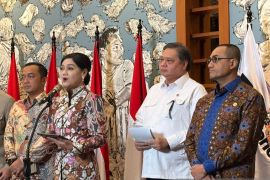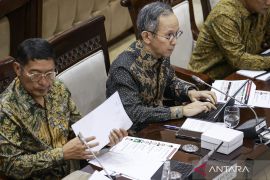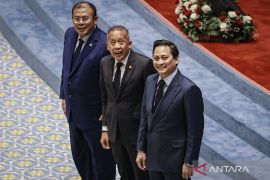The loss is predicted to grow exponentially as the weather becomes more extreme in the future.Jakarta (ANTARA) - The global demand for green finance has created an opportunity for Indonesia’s economic sectors, senior deputy governor of Bank Indonesia (BI), Destry Damayanti, said at an online discussion on Wednesday.
"The opportunity comes from Indonesia's vast and diverse natural resources. Thus, we can achieve zero emissions earlier," she added.
President Joko Widodo has said that Indonesia has a very large source of renewable energy from biothermal, tidal, and wind power plants, which are estimated to generate 418 thousand Megawatt (MW) of power, she noted.
"Hence, we have to take advantage of the potential and manage it well to make various breakthroughs, thus it can become our economic strength in the future," she remarked.
The transition to a low-carbon economy can invite global investment into Indonesia, which can boost economic growth and foreign exchange reserves, she said.
Based on the compound annual growth rate (CAGR) calculation, it is projected that Indonesia’s gross domestic product (GDP) will rise by 0.62 percent per year, while its foreign exchange reserves increase will reach US$51.9 billion, Damayanti informed.
However, the senior deputy governor emphasized that climate change will pose a threat to the global economy in 2050 and its impact is estimated to be much larger than the 2008 global financial crisis.
Indonesia is very vulnerable to the impact since it is located in the Ring of Fire, she pointed out.
According to the 2020 Catastrophe Insight, published by multinational professional services firm Aon, global economic losses due to extreme weather have reached US$5.1 trillion in the last 20 years, she said.
Related news: Jokowi outlines Indonesia's green economy strategy
Meanwhile, Indonesia is losing Rp100 trillion per year according to the National Development Planning Agency’s data in 2021, she added.
“The loss is predicted to grow exponentially as the weather becomes more extreme in the future. Thus, if we don't take additional mitigation attempts, the loss is estimated to reach 40 percent of the GDP," Damayanti said.
Furthermore, with strong global demand for a green economy, Indonesia will have a larger global transition risk if it is too late in taking mitigation actions, she added.
For instance, export barriers for prominent products are expected to become tougher due to additional carbon taxes, she said.
Global finance access will also become restricted due to the carbon tax on the purchase of securities of high-carbon entities, she added.
Hence, BI has been actively establishing green finance initiatives since 2010, she said.
Furthermore, in 2020, BI drafted a green financial framework, conducted research on green macroprudential policies, and strengthened BI regulations on green loan to value (LTV), which would be used for the green financial system, she added.
Related news: Indonesia keen to establish cooperation on green economy with UK
Translator: Kuntum Riswan, Uyu Liman
Editor: Rahmad Nasution
Copyright © ANTARA 2021
